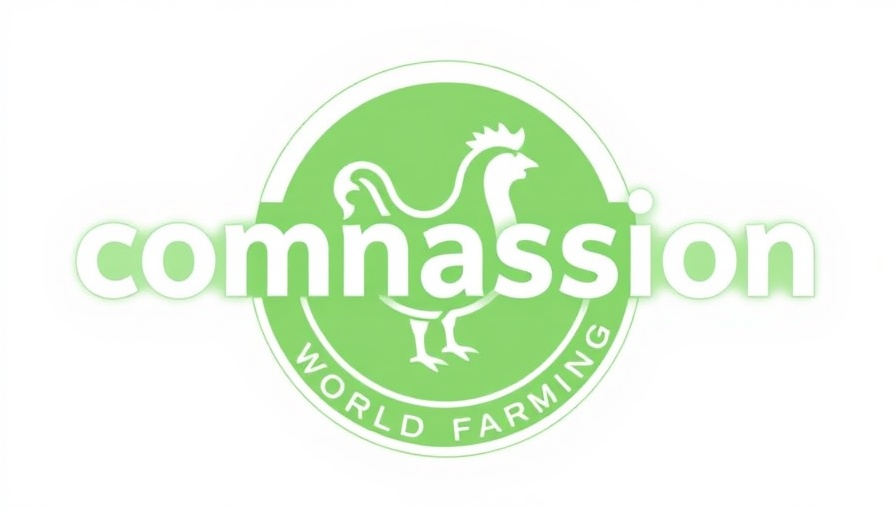
Australia's Cage-Free Commitment: A Regional Leader
As the deadline for global cage-free egg commitments approaches in 2025, Australia shines brightly in the Asia-Pacific (APAC) region. The recent APAC EggTrack 2024 Spotlight report by Compassion in World Farming (CIWF) illustrates significant progress and a few ongoing challenges in the shift toward cage-free egg production. Australia emerges as a leader, with several companies setting high benchmarks for transparency and commitment to ethical practices surrounding egg production.
Achievements of Top Australian Companies
The spotlight reveals that among the 23 companies analyzed across APAC, five Australian companies have been recognized as ‘Leaders’ in achieving 100% cage-free status. Companies like McDonald's have perfected their operations to ensure all shell eggs and egg products across Australia and New Zealand are cage-free. Other notable mentions include Coles Group, with 94% cage-free for branded eggs, and Woolworths Group, which has reported 77% cage-free for branded shell eggs and 100% cage-free for its own-brand eggs.
Furthermore, Hungry Jack’s and Sodexo Australia join the ranks of these leaders, advocating for cage-free practices. They indicate a growing industry trend toward humane treatment of farmed animals while simultaneously keeping pace with consumer demand.
Progress Amid Challenges: Transparency is Key
While the spotlight shines on leaders, it also highlights companies classified as ‘In Progress’, ‘At Risk’, or ‘Laggards’. For instance, Domino’s Pizza Enterprises is marked ‘In Progress’ with its cage-free egg implementation gradually increasing from 11.7% to 27%. However, certain major players like George Weston Foods and Aldi Süd have faced criticism for failing to publicly report on their commitments, leading to transparency concerns.
Even more troubling is Bid Corporation's shift away from its cage-free commitment, raising alarms about its commitment to animal welfare standards. With mixed results across the sector, the highlighted need for increased transparency is imperative for consumers and stakeholders alike.
The Impact of Avian Influenza and Market Dynamics
The EggTrack report also reveals that the 2024 market conditions were fraught with challenges, including an 11.2% price increase for eggs due to the Avian Influenza outbreak, which led to the culling of over 1.8 million birds in Australia. Such factors significantly affected supply chains, indicating that maintaining commitment to cage-free practices will need to balance market realities. This phenomenon raises an important question: can ethical practices hold strong in the face of economic challenges?
Future Predictions: A Cage-Free Future?
Looking ahead, the report encourages optimism. The ongoing commitment shown by Australia's leading companies shines a light on what can be achieved with concerted effort and dedication. With an average cage-free implementation growth of 9.9 percentage points in the APAC region since last year, there is a clear upward trajectory. Dr. Tracey Jones, Global Director of Food Business at CIWF, emphasized the importance of steady progress in this transition. “We remain optimistic for a cage-free future,” she said, urging companies to confront and disclose their journeys toward ethical practices.
Concluding Thoughts: A Call for Global Leadership and Responsibility
Australia's leadership in the cage-free transition can serve as a critical model for other countries in the APAC region and beyond. While significant strides have been made, the commitment to transparency and consistency is key to sustaining the momentum towards fully cage-free environments. As consumers become more conscious of the ethical standards behind their food sources, companies must adapt accordingly to align with modern values.
The spotlight is on, and the call for transparency has never been louder. For a fruitful transition towards a future that’s not just cage-free but also sustainable, all stakeholders must take meaningful action, ensuring that animal welfare is prioritized while meeting demand.
 Add Row
Add Row  Add
Add 




 Add Row
Add Row  Add
Add 

Write A Comment